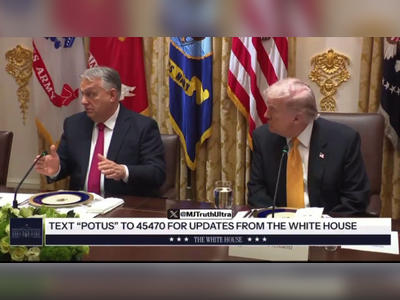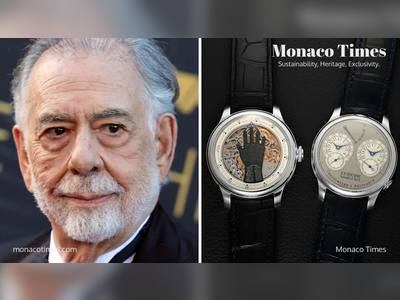
Monaco's Health Preparedness Five Years After COVID-19
Health Minister Christophe Robino discusses lessons learned from the pandemic and future readiness.
As the world marks five years since the onset of the COVID-19 pandemic, inquiries into health preparedness and crisis management have intensified across nations.
In Monaco, Christophe Robino, the Minister for Health and Social Affairs, reflects on how the principality has adapted and what strategies have been implemented to better prepare for future health crises.
The COVID-19 pandemic forced significant disruptions worldwide, revealing the critical need for effective coordination among governmental and health institutions.
In Monaco, the importance of inter-ministerial cooperation became evident, with multiple departments collaborating to manage the crisis.
Institutional communication was emphasized, leading to the dissemination of clear and transparent information to the public, which helped mitigate misinformation and promote adherence to health protocols.
From a logistical perspective, Monaco’s collaboration with French authorities proved crucial in ensuring swift access to vaccines, contributing to an efficient vaccination rollout.
The Minister expressed gratitude for this partnership, highlighting its role in maintaining public health.
The pandemic also prompted advances in e-health within the principality, including the use of the Monacosanté portal for online appointments and the deployment of the ‘Suivtst’ tool for health pass management.
The government is now working towards establishing a national health database aimed at facilitating better responses during future crises and operational recovery plans, referred to as PROCSAN.
To prevent stock shortages of essential items like masks, the government has enacted a multi-year replenishment plan managed by the health action directorate, which regularly assesses and orders supplies from selected manufacturers in France.
In seeking further lessons from the pandemic, public health promotion efforts have intensified since COVID-19, with a focus on encouraging vaccinations and enhancing health risk surveillance.
The principality maintained a balance between public health mandates and the preservation of economic activities during the crisis, avoiding overly restrictive measures that could jeopardize its economic vitality.
Support measures established for businesses and employees contributed to Monaco’s sustained attractiveness as a unique economic entity.
The pandemic saw increased attention to stock management, with lessons drawn from earlier challenges faced in procuring personal protective equipment.
A strategic state stock inclusive of personal protective equipment and medical devices is regularly updated to ensure readiness in the event of future health emergencies.
In discussions of public health improvements, Robino noted that Monaco functions within a unique geographical and institutional context that does not necessitate structures akin to those proposed in France for evaluating pandemic responses.
Instead, a mixed monitoring committee was established early in the crisis, composed of government members and national council advisors, facilitating ongoing discussions about health measures and their effectiveness during the COVID-19 response.
The pandemic generated a temporary increase in mortality rates in Monaco during 2020 and 2021, but by 2022, mortality rates returned to typical decade averages.
The principality's mortality figures align with some of the lowest in Europe, seen in countries that reacted promptly to the pandemic.
Robino explained that Monaco implemented extensive testing and epidemiological investigations as early as May 2020, including rapid testing programs and a national free testing center supported by a PCR laboratory.
This proactive strategy included the tracking of contacts to curtail virus spread.
Post-pandemic evaluations have prompted efforts to enhance reactivity through ongoing investment in digital health tools.
A national operational response plan for health crises is underway, aimed at integrating lessons from COVID-19 into robust future health protocols.
A dedicated portal for mandatory disease reporting is also being contemplated to further streamline health data management.
Surveillance of potential epidemic pathogens has increased following COVID-19, undertaken by the health action directorate in collaboration with other governmental services and health institutions.
This expansive surveillance includes regular monitoring of wastewater to facilitate early pathogen detection, thereby anticipating potential public health risks prior to their emergence in humans.
While MPs continue to assess the effectiveness of health response mechanisms, the government has emphasized that proactive public messaging and scientifically informed justifications for health measures will remain key elements in managing any未来疫情.
Ultimately, Monaco’s authorities are undertaking an internal review to incorporate feedback gained during the COVID-19 crisis into future health strategy development.
This introspection aims to equip the principality to better face various scenarios of potential health crises, beyond merely airborne transmissible diseases.
In Monaco, Christophe Robino, the Minister for Health and Social Affairs, reflects on how the principality has adapted and what strategies have been implemented to better prepare for future health crises.
The COVID-19 pandemic forced significant disruptions worldwide, revealing the critical need for effective coordination among governmental and health institutions.
In Monaco, the importance of inter-ministerial cooperation became evident, with multiple departments collaborating to manage the crisis.
Institutional communication was emphasized, leading to the dissemination of clear and transparent information to the public, which helped mitigate misinformation and promote adherence to health protocols.
From a logistical perspective, Monaco’s collaboration with French authorities proved crucial in ensuring swift access to vaccines, contributing to an efficient vaccination rollout.
The Minister expressed gratitude for this partnership, highlighting its role in maintaining public health.
The pandemic also prompted advances in e-health within the principality, including the use of the Monacosanté portal for online appointments and the deployment of the ‘Suivtst’ tool for health pass management.
The government is now working towards establishing a national health database aimed at facilitating better responses during future crises and operational recovery plans, referred to as PROCSAN.
To prevent stock shortages of essential items like masks, the government has enacted a multi-year replenishment plan managed by the health action directorate, which regularly assesses and orders supplies from selected manufacturers in France.
In seeking further lessons from the pandemic, public health promotion efforts have intensified since COVID-19, with a focus on encouraging vaccinations and enhancing health risk surveillance.
The principality maintained a balance between public health mandates and the preservation of economic activities during the crisis, avoiding overly restrictive measures that could jeopardize its economic vitality.
Support measures established for businesses and employees contributed to Monaco’s sustained attractiveness as a unique economic entity.
The pandemic saw increased attention to stock management, with lessons drawn from earlier challenges faced in procuring personal protective equipment.
A strategic state stock inclusive of personal protective equipment and medical devices is regularly updated to ensure readiness in the event of future health emergencies.
In discussions of public health improvements, Robino noted that Monaco functions within a unique geographical and institutional context that does not necessitate structures akin to those proposed in France for evaluating pandemic responses.
Instead, a mixed monitoring committee was established early in the crisis, composed of government members and national council advisors, facilitating ongoing discussions about health measures and their effectiveness during the COVID-19 response.
The pandemic generated a temporary increase in mortality rates in Monaco during 2020 and 2021, but by 2022, mortality rates returned to typical decade averages.
The principality's mortality figures align with some of the lowest in Europe, seen in countries that reacted promptly to the pandemic.
Robino explained that Monaco implemented extensive testing and epidemiological investigations as early as May 2020, including rapid testing programs and a national free testing center supported by a PCR laboratory.
This proactive strategy included the tracking of contacts to curtail virus spread.
Post-pandemic evaluations have prompted efforts to enhance reactivity through ongoing investment in digital health tools.
A national operational response plan for health crises is underway, aimed at integrating lessons from COVID-19 into robust future health protocols.
A dedicated portal for mandatory disease reporting is also being contemplated to further streamline health data management.
Surveillance of potential epidemic pathogens has increased following COVID-19, undertaken by the health action directorate in collaboration with other governmental services and health institutions.
This expansive surveillance includes regular monitoring of wastewater to facilitate early pathogen detection, thereby anticipating potential public health risks prior to their emergence in humans.
While MPs continue to assess the effectiveness of health response mechanisms, the government has emphasized that proactive public messaging and scientifically informed justifications for health measures will remain key elements in managing any未来疫情.
Ultimately, Monaco’s authorities are undertaking an internal review to incorporate feedback gained during the COVID-19 crisis into future health strategy development.
This introspection aims to equip the principality to better face various scenarios of potential health crises, beyond merely airborne transmissible diseases.









